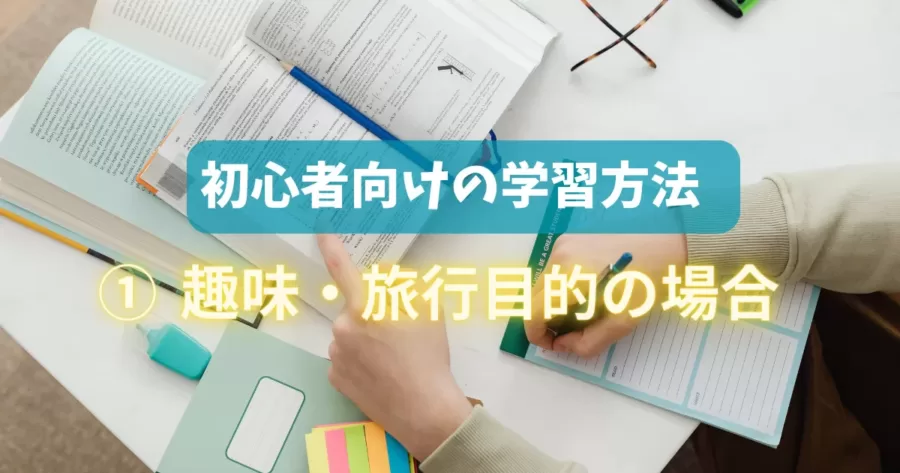アメリカの大学院進学を考えているあなたへ。修士課程や博士課程への出願から卒業まで、数多くの専門的な英語表現に遭遇することになります。「graduate student」と「undergraduate」の違いは分かっても、「ABD」や「thesis defense」といった用語に戸惑った経験はありませんか?本記事では、アメリカの大学院システムで使われる重要な英語表現を体系的に解説し、実際の会話例も交えて紹介します。
1. アメリカ大学の学年・学位システム基礎知識

学生の分類
undergraduate /ˌʌndərˈɡrædʒuət/
- 意味: 学部生
- 解説: 学士号取得前の大学生(freshman~senior)を指します。4年制大学の1年生から4年生までの学生のことです。
- 例文: “She is an undergraduate student at UCLA.”
- 和訳: 「彼女はUCLAの学部生です。」
graduate student /ˈɡrædʒuət ˈstuːdənt/
- 意味: 大学院生
- 解説: 学士号取得後、修士・博士課程で学ぶ学生を指します。アメリカでは大学院生を総称してgraduate studentと呼びます。
- 例文: “He is a graduate student working on his master’s degree.”
- 和訳: 「彼は修士号取得中の大学院生です。」
学位の種類
associate degree /əˈsoʊsiət dɪˈɡriː/
- 意味: 準学士号
- 解説: 2年制大学(コミュニティカレッジ)で取得する学位です。4年制大学への編入の橋渡しとしても利用されます。
- 例文: “She completed her associate degree before transferring.”
- 和訳: 「彼女は編入前に準学士号を取得しました。」
bachelor’s degree /ˈbætʃələrz dɪˈɡriː/
- 意味: 学士号
- 解説: 4年制大学卒業時に取得する学位です。Bachelor of Arts (BA)やBachelor of Science (BS)などがあります。
- 例文: “He earned a bachelor’s degree in engineering.”
- 和訳: 「彼は工学の学士号を取得しました。」
master’s degree /ˈmæstərz dɪˈɡriː/
- 意味: 修士号
- 解説: 学士号取得後、1~2年の大学院課程で取得する学位です。Master of Arts (MA)やMaster of Science (MS)などがあります。
- 例文: “He is pursuing a master’s degree in public health.”
- 和訳: 「彼は公衆衛生の修士号取得を目指しています。」
doctoral degree / doctorate /ˈdɒktərəl dɪˈɡriː/ /ˈdɒktərət/
- 意味: 博士号
- 解説: 修士号取得後、さらに高度な研究を経て取得する最上位学位です。Doctor of Philosophy (PhD)が最も一般的です。
- 例文: “She received her doctorate in chemistry.”
- 和訳: 「彼女は化学の博士号を取得しました。」
2. 修士課程進学に必要な英語表現

出願プロセス
graduate school /ˈɡrædʒuət skuːl/
- 意味: 大学院
- 解説: 学士号取得後に進学する上級学位課程を指します。アメリカでは、修士課程や博士課程を提供する機関や部門を総称してGraduate Schoolと呼びます。
- 例文: “She applied to several graduate schools for her master’s degree.”
- 和訳: 「彼女は修士号取得のためにいくつかの大学院に出願しました。」
graduate application /ˈɡrædʒuət ˌæplɪˈkeɪʃən/
- 意味: 大学院出願
- 解説: 大学院進学のための申請手続きです。複数の書類を組み合わせて提出する必要があります。
- 例文: “Submit your graduate application by the deadline.”
- 和訳: 「締切までに大学院出願を提出してください。」
statement of purpose (SOP) /ˈsteɪtmənt ʌv ˈpɜːrpəs/
- 意味: 志望理由書
- 解説: 志望動機や将来の目標を述べる重要な出願書類です。研究関心や将来のキャリアプランを明確に示す必要があります。
- 例文: “Write a strong statement of purpose for your application.”
- 和訳: 「出願のために強力な志望理由書を書きましょう。」
letters of recommendation /ˈlɛtərz ʌv ˌrɛkəmənˈdeɪʃən/
- 意味: 推薦状
- 解説: 教授や雇用主からの推薦文です。通常3通程度必要で、学術的能力や人格について第三者の視点から評価してもらいます。
- 例文: “Request letters of recommendation from your professors.”
- 和訳: 「教授から推薦状を依頼しましょう。」
入学試験・書類
GRE (Graduate Record Examination) /dʒiː ɑːr iː/
- 意味: 大学院入学試験
- 解説: 多くの大学院で必要な共通試験です。Verbal、Quantitative、Analytical Writingの3セクションから構成されます。
- 例文: “Prepare for the GRE before applying to graduate school.”
- 和訳: 「大学院出願前にGREの準備をしましょう。」
transcripts /ˈtrænskrɪpts/
- 意味: 成績証明書
- 解説: 学業成績の公式記録です。GPAや取得単位が記載され、学術的能力を示す重要な書類です。
- 例文: “Submit your transcripts with your application.”
- 和訳: 「出願時に成績証明書を提出してください。」
研究活動
research proposal /rɪˈsɜːrtʃ prəˈpoʊzəl/
- 意味: 研究計画書
- 解説: 研究テーマや方法をまとめた計画書です。修士課程でも研究重視のプログラムでは提出が求められることがあります。
- 例文: “Prepare a research proposal for your master’s thesis.”
- 和訳: 「修士論文のために研究計画書を準備しましょう。」
graduate advisor /ˈɡrædʒuət ədˈvaɪzər/
- 意味: 大学院アドバイザー
- 解説: 大学院生の学業・研究を指導する教員です。コースワークから論文指導まで幅広くサポートします。
- 例文: “Meet with your graduate advisor regularly.”
- 和訳: 「大学院アドバイザーと定期的に面談しましょう。」
thesis defense /ˈθiːsɪs dɪˈfɛns/
- 意味: 修士論文の口頭試問
- 解説: 修士論文を委員会の前で発表・弁護する試験です。研究成果を口頭で説明し、質疑応答を行います。
- 例文: “Prepare thoroughly for your thesis defense.”
- 和訳: 「修士論文の口頭試問に向けて十分に準備しましょう。」
3. 博士課程進学に必要な英語表現

博士課程の基本概念
doctoral program /ˈdɒktərəl ˈproʊɡræm/
- 意味: 博士課程
- 解説: 博士号取得を目指す最上位の学位課程です。通常5-7年かけて研究を行い、独創的な貢献を求められます。
- 例文: “She enrolled in a doctoral program in physics.”
- 和訳: 「彼女は物理学の博士課程に入学しました。」
PhD (Doctor of Philosophy) /piː eɪtʃ diː/
- 意味: 博士号
- 解説: 大学で授与される最高学位です。哲学博士と訳されますが、あらゆる分野の博士号を指します。
- 例文: “He earned his PhD in chemistry.”
- 和訳: 「彼は化学の博士号を取得しました。」
博士課程の重要な段階
comprehensive exam /ˌkɒmprɪˈhɛnsɪv ɪɡˈzæm/
- 意味: 総合試験
- 解説: 博士課程進級前に専門知識を問う大規模な試験です。筆記試験と口頭試験の組み合わせが一般的です。qualifying examと同じ意味で使われることも多いですが、大学によってはその位置づけや範囲が異なる場合があります。
- 例文: “Pass the comprehensive exam to continue your doctoral studies.”
- 和訳: 「博士課程の研究を続けるために総合試験に合格してください。」
qualifying exam /ˈkwɒlɪfaɪɪŋ ɪɡˈzæm/
- 意味: 予備試験・資格試験
- 解説: 博士課程進級のための基礎知識を問う試験です。comprehensive examと同じ意味で使われることもあります。
- 例文: “Pass the qualifying exam to advance to doctoral candidacy.”
- 和訳: 「博士候補生資格に進むために予備試験に合格してください。」
doctoral candidacy /ˈdɒktərəl ˈkændɪdəsi/
- 意味: 博士候補生資格
- 解説: 総合試験合格後、博士論文研究を開始できる資格です。この段階でようやく博士論文の研究に専念できます。
- 例文: “Achieve doctoral candidacy after passing comprehensive exams.”
- 和訳: 「総合試験に合格して博士候補生資格を得ましょう。」
ABD (All But Dissertation) /eɪ biː diː/
- 意味: 博士論文以外すべて修了
- 解説: 博士課程の全要件を満たし、論文のみ残っている状態を指す略語です。この段階の学生は論文執筆に集中します。
- 例文: “She is ABD and working on her dissertation.”
- 和訳: 「彼女はABDで博士論文に取り組んでいます。」
博士論文関連
dissertation proposal /ˌdɪsərˈteɪʃən prəˈpoʊzəl/
- 意味: 博士論文計画書
- 解説: 博士論文の研究計画をまとめた詳細な書類です。研究の意義、方法論、予想される結果などを含みます。
- 例文: “Prepare a dissertation proposal for your PhD research.”
- 和訳: 「博士研究のために博士論文計画書を準備しましょう。」
doctoral advisor /ˈdɒktərəl ədˈvaɪzər/
- 意味: 博士課程指導教員
- 解説: 博士課程の学生を指導する教員です。研究の方向性から論文執筆まで長期間にわたってサポートします。
- 例文: “Meet regularly with your doctoral advisor.”
- 和訳: 「博士課程指導教員と定期的に面談しましょう。」
dissertation defense /ˌdɪsərˈteɪʃən dɪˈfɛns/
- 意味: 博士論文の口頭試問
- 解説: 博士論文を委員会の前で発表・弁護する最終試験です。通常2-3時間にわたって行われます。
- 例文: “Prepare thoroughly for your dissertation defense.”
- 和訳: 「博士論文の口頭試問に向けて十分に準備しましょう。」
研究支援
research assistantship /rɪˈsɜːrtʃ əˈsɪstəntʃɪp/
- 意味: 研究助手職
- 解説: 博士課程在籍中に研究活動と経済的支援を得る職です。授業料免除や生活費支給が含まれることが多いです。
- 例文: “She received a research assistantship during her doctoral studies.”
- 和訳: 「彼女は博士課程の間、研究助手職を得ました。」
4. 大学院生活で使う動詞句集

修士課程関連の動詞句
advance to graduate school /ədˈvæns tuː ˈɡrædʒuət skuːl/
- 意味: 大学院に進学する
- 解説: 学士課程修了後、修士・博士課程に進むことを表します。
- 例文: “After graduation, he plans to advance to graduate school.“
- 和訳: 「卒業後、彼は大学院に進学する予定です。」
apply to a master’s program /əˈplaɪ tuː ə ˈmæstərz ˈproʊɡræm/
- 意味: 修士課程に出願する
- 解説: 修士号取得を目指して大学院に出願することを指します。
- 例文: “She plans to apply to a master’s program in public health.”
- 和訳: 「彼女は公衆衛生の修士課程に出願する予定です。」
submit a statement of purpose /səbˈmɪt ə ˈsteɪtmənt ʌv ˈpɜːrpəs/
- 意味: 志望理由書を提出する
- 解説: 志望動機や将来の目標をまとめた書類を出願時に提出することです。
- 例文: “Don’t forget to submit a statement of purpose with your application.”
- 和訳: 「出願時に志望理由書の提出を忘れないでください。」
request letters of recommendation /rɪˈkwɛst ˈlɛtərz ʌv ˌrɛkəmɛnˈdeɪʃən/
- 意味: 推薦状を依頼する
- 解説: 教員や職場の上司などに推薦状を書いてもらうことを依頼することです。
- 例文: “You should request letters of recommendation early.”
- 和訳: 「推薦状は早めに依頼しましょう。」
submit transcripts /səbˈmɪt ˈtrænskrɪpts/
- 意味: 成績証明書を提出する
- 解説: これまでの学業成績を証明する書類を出願時に提出することです。
- 例文: “Applicants must submit transcripts from all previous institutions.”
- 和訳: 「すべての前籍校の成績証明書を提出しなければなりません。」
take the GRE /teɪk ðə ˌdʒiː ɑːr ˈiː/
- 意味: GREを受験する
- 解説: 多くの大学院で必要な共通試験を受けることです。
- 例文: “Most graduate schools require you to take the GRE.”
- 和訳: 「多くの大学院でGREの受験が必要です。」
complete coursework /kəmˈpliːt ˈkɔːrswɜːrk/
- 意味: 課程科目を修了する
- 解説: 修士課程で必要な授業や単位を修了することです。
- 例文: “You must complete all required coursework before starting your thesis.”
- 和訳: 「論文に取りかかる前にすべての必修科目を修了しなければなりません。」
write a master’s thesis /raɪt ə ˈmæstərz ˈθiːsɪs/
- 意味: 修士論文を書く
- 解説: 修士課程の集大成として研究論文を執筆することです。
- 例文: “She is writing her master’s thesis on climate policy.”
- 和訳: 「彼女は気候政策について修士論文を書いています。」
defend a master’s thesis /dɪˈfɛnd ə ˈmæstərz ˈθiːsɪs/
- 意味: 修士論文の口頭試問を受ける
- 解説: 委員会の前で論文の内容を発表・弁護することです。
- 例文: “He will defend his master’s thesis next month.”
- 和訳: 「彼は来月修士論文の口頭試問を受けます。」
博士課程関連の動詞句
apply to a doctoral program / PhD program /əˈplaɪ tuː ə ˈdɒktərəl ˈproʊɡræm/
- 意味: 博士課程に出願する
- 解説: 博士号取得を目指して大学院に出願することです。
- 例文: “He wants to apply to a PhD program in neuroscience.”
- 和訳: 「彼は神経科学の博士課程に出願したいと考えています。」
pass the qualifying exam /pæs ðə ˈkwɒlɪfaɪɪŋ ɪɡˈzæm/
- 意味: 予備試験に合格する
- 解説: 博士課程進級のための基礎知識を問う試験に合格することです。
- 例文: “Students must pass the qualifying exam to become PhD candidates.”
- 和訳: 「博士候補生になるには予備試験に合格しなければなりません。」
advance to candidacy /ədˈvæns tuː ˈkændɪdəsi/
- 意味: 博士候補生資格を得る
- 解説: 必要な試験や単位をクリアし、博士論文研究に進む資格を得ることです。
- 例文: “After passing the comprehensive exam, you advance to candidacy.”
- 和訳: 「総合試験に合格すると博士候補生資格を得ます。」
propose a dissertation topic /prəˈpoʊz ə ˌdɪsərˈteɪʃən ˈtɒpɪk/
- 意味: 博士論文テーマを提案する
- 解説: 博士論文の研究テーマを正式に提案することです。
- 例文: “You must propose a dissertation topic before starting your research.”
- 和訳: 「研究を始める前に博士論文のテーマを提案しなければなりません。」
conduct original research /kənˈdʌkt əˈrɪdʒɪnəl rɪˈsɜːrtʃ/
- 意味: 独自研究を行う
- 解説: 博士論文のために新規性のある研究を実施することです。
- 例文: “PhD students are expected to conduct original research.“
- 和訳: 「博士課程の学生は独自研究を行うことが求められます。」
write a dissertation /raɪt ə ˌdɪsərˈteɪʃən/
- 意味: 博士論文を書く
- 解説: 博士号取得のための最終的な研究論文を執筆することです。
- 例文: “She is writing her dissertation on renewable energy.”
- 和訳: 「彼女は再生可能エネルギーについて博士論文を書いています。」
defend a dissertation /dɪˈfɛnd ə ˌdɪsərˈteɪʃən/
- 意味: 博士論文の口頭試問を受ける
- 解説: 博士論文を委員会の前で発表し、質疑応答を行うことです。
- 例文: “He will defend his dissertation next semester.”
- 和訳: 「彼は来学期に博士論文の口頭試問を受けます。」
publish research findings /ˈpʌblɪʃ rɪˈsɜːrtʃ ˈfaɪndɪŋz/
- 意味: 研究成果を発表・出版する
- 解説: 学会や学術誌で研究成果を公表することです。
- 例文: “PhD students are encouraged to publish their research findings.”
- 和訳: 「博士課程の学生は研究成果を発表・出版することが推奨されています。」
present at academic conferences /prɪˈzent ət ˌækəˈdɛmɪk ˈkɒnfərənsɪz/
- 意味: 学会で発表する
- 解説: 研究成果を学会やシンポジウムで発表することです。
- 例文: “She presented her research at several academic conferences.“
- 和訳: 「彼女は複数の学会で研究発表を行いました。」
5. 実際の会話例で学ぶ大学院英語

修士課程出願についての相談
Student (Maya): Hi, Professor Lee. I’m graduating this semester and I’m thinking about applying to graduate school for a master’s degree in public health. Could I ask you for some advice?
Professor Lee: Of course, Maya. Congratulations on your upcoming graduation! Have you started your graduate applications yet?
Maya: Not yet. I’m still researching programs and requirements. I know I’ll need to submit my transcripts and probably take the GRE. Is there anything else I should prepare?
Professor Lee: Yes, most programs will ask for a statement of purpose and letters of recommendation. You should also think about your research interests and maybe prepare a brief research proposal if required.
Maya: Thank you. Would you be willing to write me a letter of recommendation?
Professor Lee: I’d be happy to. Just send me your resume and a draft of your statement of purpose so I can write a strong letter for you.
Maya: Thank you so much! One more question: How important is the GPA for admission to a good graduate program?
Professor Lee: A strong GPA is important, but your statement of purpose, recommendations, and relevant experience also matter a lot. Be sure to highlight any research or internships you’ve done.
Maya: That’s really helpful. I’ll start working on my application materials right away.
Professor Lee: Great! If you have any more questions about the application process or graduate school, feel free to come by during my office hours.
Maya: Thank you, Professor Lee. I appreciate your support!
学生(マヤ):こんにちは、リー教授。今学期で卒業予定なのですが、公衆衛生の修士号(master’s degree)を取るために大学院(graduate school)への出願を考えています。アドバイスをいただけますか?
リー教授:もちろんです、マヤ。卒業(graduation)おめでとう!もう大学院出願(graduate applications)は始めましたか?
マヤ:まだです。今はプログラムや要件を調べているところです。成績証明書(transcripts)を提出したり、たぶんGREも受けないといけないですよね。他に準備すべきことはありますか?
リー教授:はい、ほとんどのプログラムでは志望理由書(statement of purpose)と推薦状(letters of recommendation)も求められます。自分の研究テーマ(research interests)も考えておくといいですよ。場合によっては簡単な研究計画書(research proposal)も必要です。
マヤ:ありがとうございます。推薦状(letter of recommendation)を書いていただくことはできますか?
リー教授:もちろんです。履歴書(resume)と志望理由書(statement of purpose)の下書きを送ってくれれば、しっかりとした推薦状を書きますよ。
マヤ:本当にありがとうございます!もう一つ質問ですが、良い大学院に入るにはGPAはどれくらい重要ですか?
リー教授:高いGPAは重要ですが、志望理由書や推薦状、関連する経験も大きなポイントです。これまでの研究やインターンシップ経験もぜひアピールしてください。
マヤ:とても参考になりました。すぐに出願書類の準備を始めます。
リー教授:素晴らしい!出願手続き(application process)や大学院(graduate school)について他にも質問があれば、オフィスアワーにいつでも来てください。
マヤ:ありがとうございます、リー教授。ご支援に感謝します!
博士課程進学についての詳細相談
Student (Ryan): Hi, Professor Smith. I’m finishing my master’s thesis soon, and I’m considering applying to a PhD program. I’ve heard the transition from a master’s to a doctorate is quite challenging. Could you tell me more about the requirements?
Professor Smith: Absolutely, Ryan. The jump from a master’s to a PhD is significant. You’ll need to handle a much greater scope and depth of research. For example, a typical PhD dissertation is around 80,000 words, compared to a 20,000-word master’s thesis.
Ryan: That sounds intense. What are some of the main hurdles I should expect?
Professor Smith: First, most programs require you to complete advanced coursework with at least a B average.Then, you must pass a candidacy exam—sometimes called a qualifying or comprehensive exam—which can be written, oral, or both. Only after passing this exam do you officially become a PhD candidate.
Ryan: How long does the whole process usually take?
Professor Smith: In the US, it often takes five to seven years to finish a PhD, on top of your master’s. There are strict time limits—for example, some universities require you to advance to candidacy within five years, and the total time to complete your PhD is usually capped at ten years.
Ryan: What about funding and support?
Professor Smith: PhD students often receive financial aid or stipends, but you’ll need to be proactive in seeking grants and assistantships. Also, you’re expected to contribute original research to your field, which means publishing papers and presenting at conferences.
Ryan: It sounds like a big commitment. Do you have any advice for making a successful transition?
Professor Smith: Stay organized, network with other PhD students, and reflect on your progress regularly. Keeping a research journal or blog can help you track your development. And remember, the workload and expectations are much higher than in a master’s program, so resilience and motivation are essential.
Ryan: Thank you, Professor. I’ll think carefully before making my decision.
Professor Smith: You’re welcome, Ryan. If you have more questions or want to discuss your research proposal, feel free to stop by during my office hours.
学生(ライアン):こんにちは、スミス教授。もうすぐ修士論文が終わるので、博士課程(PhD program)への進学を考えています。修士から博士への移行はかなり厳しいと聞いていますが、どんな条件があるのか教えていただけますか?
スミス教授:もちろんです、ライアン。修士から博士へのステップは大きな飛躍です。研究の範囲と深さが格段に広がります。例えば、博士論文(PhD dissertation)は通常8万語ほどで、修士論文の2万語と比べるとかなりのボリュームです。
ライアン:それは大変そうですね。主なハードルにはどんなものがありますか?
スミス教授:まず、上級課程の履修でB平均以上を取る必要があります。その後、博士候補資格試験(candidacy exam/qualifying exam/comprehensive exam)に合格しなければなりません。これは筆記・口頭、またはその両方で行われます。この試験に合格して初めて正式なPhD候補生になります。
ライアン:全体でどれくらい時間がかかるのでしょうか?
スミス教授:アメリカでは修士に加えて博士課程修了まで通常5~7年かかります。進級や修了には厳しい期限があり、例えば5年以内に候補生になり、全体で10年以内に博士号を取得しなければなりません。
ライアン:資金やサポート体制はどうですか?
スミス教授:多くの博士課程学生は奨学金や給与(stipend)*を受け取りますが、自分で助成金やアシスタント職を積極的に探す必要があります。また、独自の研究成果を発表し、学会発表や論文投稿も求められます。
ライアン:本当に大きな覚悟が必要ですね。成功するためのアドバイスはありますか?
スミス教授:計画的に進め、他の博士課程学生とネットワークを築き、進捗を定期的に振り返ることが大切です。研究日誌やブログをつけると成長が実感できます。修士課程よりも負担や期待がはるかに大きいので、粘り強さと高いモチベーションが不可欠です。
ライアン:ありがとうございます。よく考えて決めたいと思います。
スミス教授:どういたしまして。研究計画について相談したいときは、いつでもオフィスアワーに来てください。
Graduate School Guide: Master’s and Doctoral Programsを読んでみましょう

Graduate School Guide: Master’s and Doctoral Programs
Considering a Master’s Program
- Choose a research topic that matches your interests and the program’s focus.
- Formulate a research question to guide your study.
- Conduct a literature review to understand previous studies in your field.
- Search the database for recent articles, books, and academic sources.
- Gather sources and take notes on important points.
- Develop an outline for your research paper or thesis.
- Write a draft and cite your sources using the required citation style (e.g., APA).
- Revise your draft and proofread your work to improve clarity and accuracy.
- Submit your paper or thesis by the deadline.
- If required, submit an annotated bibliography with summaries of your sources.
- Participate in peer review for feedback from classmates and professors.
- Avoid plagiarism by always giving credit to others’ ideas.
Tip: Request letters of recommendation early, and prepare a strong statement of purpose for your application.
Considering a Doctoral Program (PhD)
- Choose a research topic that allows for original contribution to your field.
- Formulate a research question that addresses a gap in the literature.
- Conduct a literature review and gather sources for your proposal.
- Develop an outline and write a detailed research proposal.
- Take the GRE or other required exams if needed.
- Apply to a doctoral program and submit all required documents (transcripts, statement of purpose, letters of recommendation).
- After admission, complete coursework and pass the qualifying/comprehensive exams.
- Propose a dissertation topic and begin your research.
- Conduct original research and collect data.
- Write a dissertation and cite your sources properly.
- Defend your dissertation before a committee.
- Publish research findings and present at academic conferences.
- Avoid plagiarism and follow academic honesty policies.
Tip: Seek guidance from your advisor and participate in peer review and academic discussions.
Presentation Skills for Graduate Students
- Prepare your slides with clear key points and effective visual aids.
- Distribute handouts to your audience if needed.
- Practice your presentation several times and time your presentation.
- Be ready for a question and answer session (Q&A) and to receive feedback from professors and peers.
- Always include proper citations on your slides to avoid plagiarism.
- After your talk, reflect on your performance for future improvement.
修士課程・博士課程進学を考えている学生向けガイド
修士課程(Master’s Program)を検討している場合
- 興味やプログラムの分野に合った研究テーマ(research topic)を選びましょう。
- 研究の指針となるリサーチクエスチョン(research question)を立てましょう。
- 先行研究調査(literature review)を行い、分野の流れを把握します。
- データベース検索(search the database)で最新の論文や資料を探します。
- 資料を集め(gather sources)、重要な点をメモ(take notes)しましょう。
- アウトライン(develop an outline)を作成し、研究論文(research paper)や論文計画を立てます。
- 下書き(write a draft)を書き、引用(cite your sources)は必ず指定の引用スタイル(citation)で行いましょう。
- 下書きを修正(revise your draft)し、校正(proofread your work)して内容を磨きます。
- 期限までに論文を提出(submit your paper)しましょう。
- 必要に応じて注釈付き参考文献リスト(annotated bibliography)も提出します。
- *ピアレビュー(peer review)でクラスメイトや教員からフィードバックを受けましょう。
- 盗用(plagiarism)を避け、必ず他人のアイデアには出典を明記してください。
アドバイス:
早めに推薦状(letters of recommendation)を依頼し、志望理由書(statement of purpose)をしっかり準備しましょう。
博士課程(Doctoral Program / PhD)を検討している場合
- 分野に新しい貢献ができる研究テーマ(research topic)を選びましょう。
- 先行研究にない課題を扱うリサーチクエスチョン(research question)を立てます。
- 先行研究調査(literature review)と資料収集(gather sources)で研究計画を練ります。
- アウトライン(develop an outline)を作り、詳細な研究計画書(proposal)を書きます。
- 必要に応じてGRE等の試験(take the GRE)を受けます。
- 博士課程に出願(apply to a doctoral program)し、必要書類(成績証明書、志望理由書、推薦状など)を提出します。
- 入学後は課程科目を修了(complete coursework)し、予備試験(qualifying/comprehensive exams)に合格します。
- 博士論文テーマを提案(propose a dissertation topic)し、研究を開始します。
- 独自研究(conduct original research)を行い、データを集めます。
- 博士論文執筆(write a dissertation)と正しい引用(cite your sources)を徹底します。
- 博士論文の口頭試問(defend your dissertation)を受けます。
- 研究成果の発表・出版(publish research findings)や学会発表(present at academic conferences)も行いましょう。
- 盗用(plagiarism)を避け、学術的誠実さを守りましょう。
アドバイス:
アドバイザーに相談し、ピアレビュー(peer review)や学術的な議論に積極的に参加しましょう。
大学院生のプレゼンスキル
- スライド(slides)は重要なポイント(key points)や視覚資料(visual aids)を使って分かりやすく作成しましょう。
- 必要なら配布資料(handouts)を聴衆(audience)に用意します。
- プレゼンテーション(presentation)は何度も練習し、発表時間(time your presentation)も確認しましょう。
- 質疑応答(question and answer session / Q&A)やフィードバック(feedback)にも備えます。
- スライド(slides)には必ず引用(citations)を入れ、盗用(plagiarism)を防ぎます。
- 発表後は自分の発表を振り返る(reflect on your performance)ことも大切です。
まとめ

本記事では、アメリカの大学院進学を目指す皆さんにとって必須となる専門的な英語表現を、修士課程から博士課程、そして実際の大学院生活に至るまで体系的に解説しました。
undergraduateとgraduate studentといった基本的な学生の分類から始まり、associate degreeから最上位のdoctoral degree (PhD)までの学位の種類を学びました。
出願プロセスでは、graduate applicationの重要性、statement of purpose (SOP)やletters of recommendationの準備、そしてGREやtranscriptsといった必要書類について理解を深めました。特に博士課程では、comprehensive examやqualifying examを経てdoctoral candidacy (ABD)に進む過程、そしてdissertation proposalやdissertation defenseといった核心的な段階で使われる表現を網羅しました。
また、advance to graduate schoolやwrite a master’s thesis、defend a dissertationなど、大学院生活で頻繁に使う動詞句を具体的な例文とともに紹介し、実際の会話例を通してこれらの英語表現がどのように使われるかを体験していただきました。
この記事が、アメリカの大学院進学という大きな目標に向かう皆さんの学習の一助となり、自信を持って留学生活を送るための羅針盤となることを願っています。これらの英語表現を習得し、アメリカの大学院で充実した研究生活を送ってください。
英語・英会話の基礎を学びたい方はこちらから! ↓

語彙力強化したい方はこちらから! ↓






















































